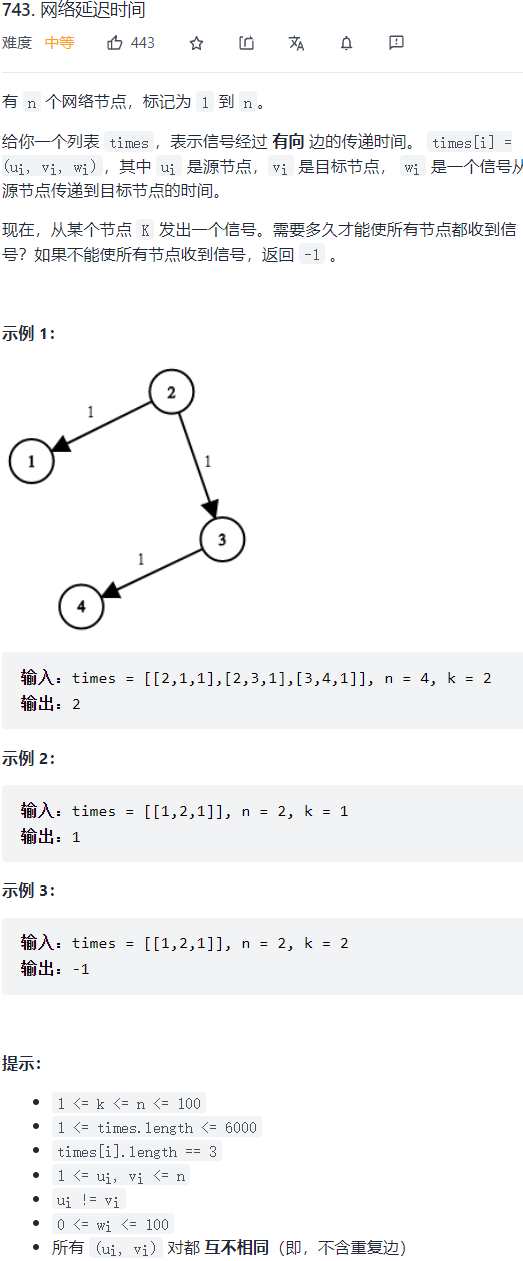1
2
3
4
5
6
7
8
9
10
11
12
13
14
15
16
17
18
19
20
21
22
23
24
25
26
27
28
29
30
31
32
33
34
35
36
37
38
39
40
41
42
43
44
| class Solution {
using pii = pair<int,int>;
const static int N = 110, M = 6010, inf = 0x3f3f3f3f;
int h[N], ne[M], e[M], w[M], idx, n, dist[N], s;
bool st[N];
public:
void add(int a, int b, int c){
e[idx] = b, w[idx] = c, ne[idx] = h[a], h[a] = idx++;
}
void dijkstra(){
memset(dist, 0x3f, sizeof(dist));
priority_queue<pii, vector<pii>, greater<pii>> q;
dist[s] = 0;
q.push({0, s});
while(q.size()){
auto p = q.top(); q.pop();
int x = p.first, y = p.second;
if(st[y]) continue;
st[y] = true;
for(int i = h[y]; ~i; i = ne[i]){
int j = e[i];
if(dist[j] > x + w[i]){
dist[j] = x + w[i];
q.push({dist[j], j});
}
}
}
}
int networkDelayTime(vector<vector<int>>& times, int _N, int _K) {
n = _N, s = _K;
memset(h, -1, sizeof(h));
for(auto time : times){
int a = time[0], b = time[1], c =time[2];
add(a, b, c);
}
dijkstra();
int res = 0;
for(int i = 1; i <= n; i++) res = max(res, dist[i]);
if(res == inf) return -1;
return res;
}
};
|

